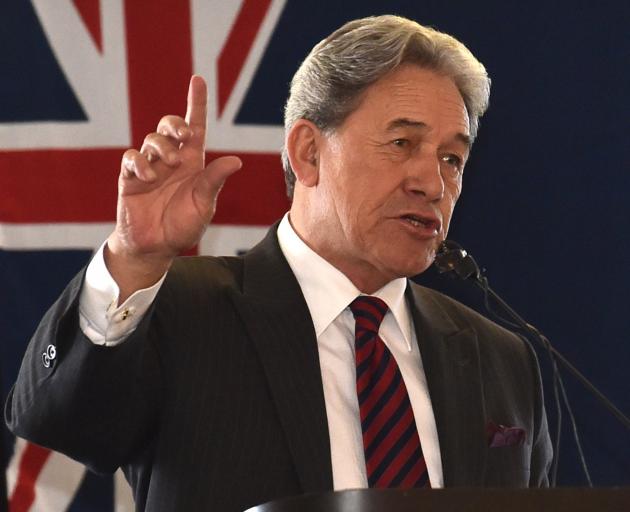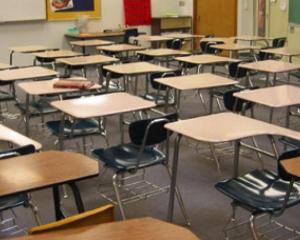
The unheralded policy this week drew an unusually forthright and undiplomatic rebuke from European Union ambassador Bernard Savage.
At a briefing on Tuesday in Wellington, Savage said any moves made towards thawing relations with Russia would be viewed in a "very negative" light.
The policy, written into the Labour-New Zealand First coalition agreement at the urging of the smaller party, risks harming relations with one of our largest trading partners in order to enhance those with one of our smallest.
According to 2016 figures the European Union is our third-largest trading partner with a total of $20 billion in imports and exports each year, while two-way trade with Russia currently amounts to only $417 million.
Savage's told those attending that reactivating the stalled Russia deal - suspended since 2014 - would complicate New Zealand's efforts later this year to secure a free trade deal with the EU.
Winston Peters, the minister of foreign affairs and NZ First leader, dismissed Savage's concerns about his plans and claimed the current state of affairs was "unfair" for New Zealand businesses.
"If we're breaking step, how come there are a number of EU exporters going into Russia now, as I speak, and countries like Switzerland are?"
(Switzerland is not a member of the European Union. Peters declined to provide details or explain the significance of the EU-Russia trade he referred to.)
Labour MP David Parker, the new minister of trade, seemed blindsided by the news and said his first week in government had been spent working on issues surrounding the Trans-Pacific Partnership.
"I haven't really given any thought to the Russian deal yet," he said.
Stephen Hoadley, an associate professor of international relations at the University of Auckland, said the plan to thaw relations with Russia would see New Zealand out-of-step with international colleagues.
"New Zealand might find itself in strange company with Donald Trump in trying to reset relations with Russia," he said.
Hoadley said the policy posed the first significant foreign relations challenge for the new Government, and did not appear to have been thought through.
"Do Winston and New Zealand First recognise how inflammatory this might be to those really angry about Russia's aggression? Is it worth making a few million more in trade to incur criticism from like-minded western countries?"
National Party foreign affairs spokesman Gerry Brownlee said the Government must tread cautiously to avoid the coalition policy on Russia tainting more important relationships.
"We're close to landing an agreement with the EU - a very big trading bloc - and that will eventually spin out to Great Britain," Brownlee said.
Negotiations with the EU - our third-largest export market and the largest single source of our imports - on a long-discussed free trade deal are scheduled to begin later this year.
Brownlee said he was befuddled by the interest of New Zealand First in free trade with Russia given the party's criticism of other trade deals.
"This focus on Russia - still considered to be by the rest of Europe as something of a rogue state - I can't figure out," he said.
Russia has in recent times attracted significant criticism over its foreign policy.
Its 2014 annexation of Crimea and intervention in eastern Ukraine, including the backing of separatists who shot down Malaysia Airlines Flight 17, drew international condemnation and sparked tit-for-tat sanctions from the European Union and United States.
More recently, the United States intelligence community claims Russia interfered in last year's presidential election in favour of Donald Trump. Criminal charges were recently filed by special prosecutor Robert Mueller against figures connected with the Trump campaign for laundering and undeclared lobbying in favour of Russian-backed interests in Ukraine.
Savage made his comments at a briefing to around a dozen civil society figures at the Intercontinental Hotel.
Later in the week a spokesman for the EU embassy attempted to walk back his remarks, claiming they had been made in confidence and declining to make the ambassador available for an interview.
"We are not prepared to discuss what was said in a non-public meeting," the spokesman said.
The Weekend Herald has confirmed Savage's remarks by speaking to several people who attended the briefing, including some who said they were not given the impression they were not meant for public consumption.
Attendee Bill Rosenberg, Council of Trade Unions policy director, said Savage pitched his objections as a matter of principled foreign policy, particularly in relation to the ongoing crisis in Crimea and Ukraine.
Rosenberg said the CTU had their own misgivings about such a deal. "Part of our concerns with Khazakstan, Belarus and Russia is they have absolutely appalling labour standards," he said.
The diplomatic fracas comes after New Zealand First was successful in coalition negotiations to include a line committing the Government to "work towards" a free trade deal with a bloc dominated by Russia.
The policy change was included almost as a footnote in the recently-signed coalition agreement between Labour and New Zealand First, being the second-to-last item in a list of miscellaneous policies labelled "other" on the agreement's second-to-last page.
The Customs Union has grown since 2014 into the Eurasian Economic Union, and has seen the addition of Armenia and Kyrgyzstan.
Public briefing notes from the ministry of foreign affairs and trade said the proposed deal referenced in the coalition agreement had been close to being concluded before it was put on ice March 2014.
"Significant progress has been made in the negotiations with the Customs Union since they started in November 2010. However following the events in Ukraine and Crimea, the negotiations have been suspended."
The 2014 suspension was a moment of high diplomatic drama, with then-trade Minister Tim Groser, in the middle of negotiations in Moscow, abruptly recalled to Wellington.
Former Prime Minister John Key told the Weekend Herald the abrupt move was done to express New Zealand solidarity with the international response to the events in Crimea.
"I took the view that it would be odd and inconsistent for a country like New Zealand to continue with negotiations at a time where we were both critical of Russia and supportive of the sanctions others were imposing," he said.
The University of Auckland's Hoadley said the inclusion of the policy in the coalition agreement was "weird" - given it had little public discussion or promotion - and would inevitably "stir considerable controversy".
"It would be an unexpected change in policy, one that would reverse settled policy, and one that would contradict the mainstream view of New Zealand's principal trade partners," he said
"It looks like New Zealand will try and step around the EU to get to Russia first - and break ranks with like-minded western governments.
Hoadley said he was unsurprised by Savage's remarks, although they were unexpectedly frank in linking criticism of thawed relations with Russia to upcoming and long-scheduled negotiations for a free trade agreement between the EU and New Zealand.
"Diplomats are usually not quite so forthright with threats," he said.
Peters regularly used Parliament's question time during the last term of government to criticise Key over the suspension of the deal and argue for an opening of economic ties with Russia.
The Weekend Herald understands Peters met with Valery Tereshchenko, the Russian Federation ambassador to New Zealand, several times in the year prior to October's general election.
Questions about the meetings and a request to interview Tereshchenko sent to the Russian Federation embassy in Wellington this week went unanswered.
Brownlee said ambassadors meeting members of parliament was not unusual.
"Ambassadors always like to get a broad picture of what's going on in New Zealand. Generally these meeting are to advance understand between countries, not to become opportunities for lobbying."
Brownlee said he was unwilling to speculate on the nature of Peters' meetings, but noted his own recent six-month stint as minister of foreign affairs saw him have less contact with Tereshchenko than the then-MP for Northland.
"I don't believe I've met the Russian ambassador at all," he said.
Peters confirmed meeting Tereshchenko, but said he was only one envoy among many.
"All manner of ambassadors ask to speak to me, and I do. I don't know what's untoward about that, particularly [when] we are meant to be keeping lines of communication open with everybody around the world," he said.
"If the Russian ambassador wasn't interested in talking to Gerry, I can't do anything about this."
Asked if Tereshchenko was supportive of his efforts to reopen the stalled trade deal, Peters said: "The Russian ambassador was aware of the matters I had raised in Parliament - yes."












